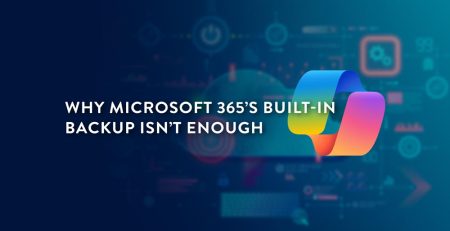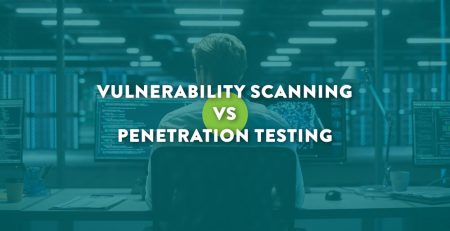AI Tools and Data Protection: Is It Safe to Use Consumer Versions for Work?
AI tools like ChatGPT and Copilot are great for productivity, automation and idea generation, but do you think about what happens to your data after it’s been used in a prompt?
Every AI tool is different in how it uses your data, even among free and paid versions of the same product.
Many people are introduced to AI tools via the free versions, like ChatGPT or Standard Copilot. But these free versions do not protect your data the same way as their business counterparts.
Contrary to what many people think, the key difference between AI tools isn’t just cost, it’s how they handle your data. That’s why free versions should never be used for work.
“A Microsoft 365 Copilot license — or the free M365 Copilot Chat that comes with a Business license — will allow employees to utilize an AI tool without sacrificing data protection.”
Free AI Tools In Workplace Introduce Hidden Risk
The most important thing you should know about AI tools is you shouldn’t be using the consumer or free versions for work, and you shouldn’t allow your employees to be using them for work.
For example, Microsoft offers enterprise data protection for business versions like Microsoft 365 Copilot Chat and Microsoft 365 Copilot, but not for consumer versions like Standard Copilot or Copilot Pro.
Enterprise-grade protection means Microsoft doesn’t have access to the data you use for prompts and it isn’t used to train the AI model.
Although Copilot Pro is a paid version for individuals, it doesn’t offer the same enterprise-grade protection as the business version.
The same goes for ChatGPT: The free and paid consumer versions don’t offer data protection, but the Team and Enterprise versions do.
We still wouldn’t recommend using personal data (like Social Security numbers, credit card numbers, etc.) to prompt AI tools, even if you use one that protects data. But work data, like sales figures and proprietary information, is safe to use in a prompt when you have the paid protections in place.
AI Tools and Data Protection at a Glance
Keeping track of the different versions of AI tools can be a nightmare. Below, you’ll see a table of some of the more popular tools and if they protect your data. Red boxes are bad, yellow boxes have some caveats and green boxes are safe.
AI tool | Consumer or business? | Data Processing Agreement (DPA) | Should you use with personal data? | Should you use within a company? | Does it use your prompts for training? |
ChatGPT Free | Consumer | Not available | No | Possible with restrictions | Yes |
ChatGPT Plus | Consumer | Not available | No | Possible with restrictions | Yes |
ChatGPT Team | Business | Possible | Possible | No | |
Standard Copilot | Consumer | Not available | No | Possible | |
Copilot Pro | Consumer | Not available | No | Not recommended | Possible |
Microsoft 365 Copilot Chat | Business | Possible if web search is disabled | Possible if web search is disabled | Possible with active web search | |
Microsoft 365 Copilot | Business | Possible | Possible | No | |
Google Gemini | Consumer | Not available | No | Limited possibility | Yes |
Gemini for Google Workspace | Business | Possible | Possible | No |
As you can see, the consumer versions should be avoided for work because they don’t offer data processing agreements and use your prompts to train the model. And while you still need to be cautious about what you use to prompt a business AI tool, it’s much safer than the consumer versions.
This table is based on a much larger table created by Vischer, a Swiss law firm.
Protect Your Data with Copilot
Are your employees eager to try an AI tool to change their workflow? That excitement should be encouraged, but you want to ensure they aren’t putting your data at risk.
A Microsoft 365 Copilot license — or the free M365 Copilot Chat that comes with a Business license — will allow them to utilize an AI tool without sacrificing data protection. Contact us to schedule a consultation.
Stay updated! Get tips and insights delivered to your inbox weekly by subscribing to our newsletter.











